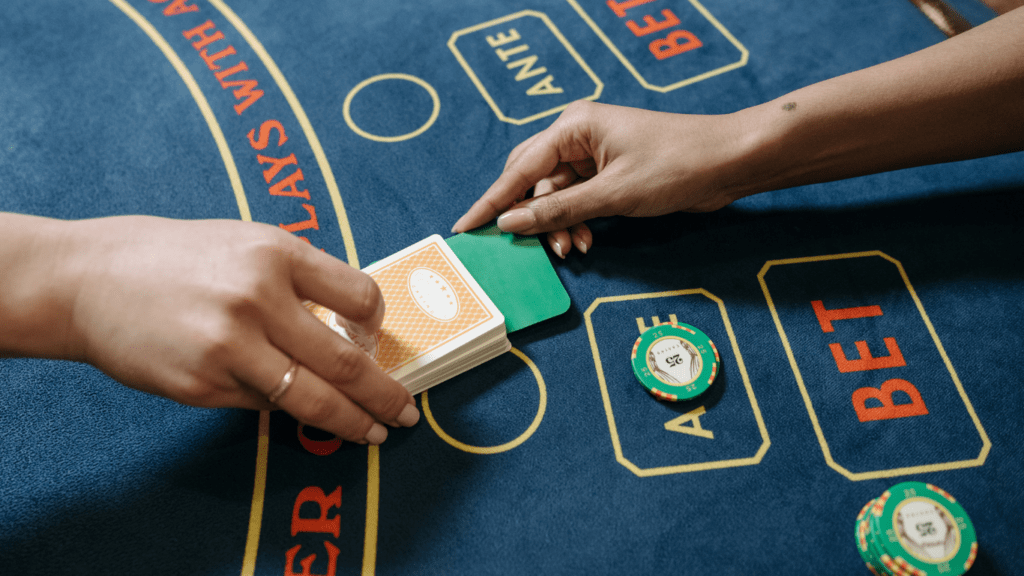Understanding the Importance of Risk Management in Gambling
Recognizing the role of risk management is key in gambling. It involves processes to reduce potential losses and ensure a safer gambling experience. Effective risk management also helps maintain control over time and money, minimizing the risks associated with gambling activities.
Limiting financial exposure is a crucial aspect of risk management. Setting strict budgets prevents excessive losses and ensures gambling remains an enjoyable activity. According to the National Council on Problem Gambling, over 5 million Americans struggle with gambling addiction. Proper budgeting can significantly reduce this risk.
Time management is essential. Spending predetermined time limits on gambling activities can help prevent addiction and maintain a healthy balance. For example, dedicating two hours per week to gambling ensures it does not interfere with other life responsibilities.
Understanding odds and probabilities aids in making informed decisions. Knowing the house edge of casino games can guide better betting practices. For instance, blackjack typically has a lower house edge compared to slot machines, presenting a more favorable option for risk-conscious gamblers.
Emotion control forms a core part of risk management. Avoiding gambling when experiencing strong emotions like stress or excitement can prevent rash decisions and substantial losses. Gamblers Anonymous reports that maintaining emotional stability helps in making rational betting choices.
Setting win and loss limits is an effective strategy. Predetermined stop-loss and stop-win points help in quitting while ahead or cutting losses before they escalate. For instance, if the target is to stop after winning $100 or losing $50, it prevents the temptation to chase losses or continue betting recklessly.
Risk management in gambling ensures that it remains a fun activity rather than a hazardous habit. Implementing these strategies fosters responsible gambling and helps maintain control over both finances and time.
Setting a Gambling Budget
Creating a gambling budget keeps finances in check and ensures a more controlled gambling experience. This section covers how to determine budget limits and the importance of sticking to them.
Determining Your Budget Limits
A clear understanding of your financial situation sets the foundation for a gambling budget. First, evaluate disposable income after accounting for essential expenses, such as:
- rent
- utilities
- groceries
Allocate only a small fraction of this disposable income to gambling to avoid financial stress. For instance, if disposable income is $500, allocate a maximum of 10%, or $50, towards gambling. Remember, the budget should never interfere with daily living expenses or savings goals.
Sticking to Your Budget
- Once the budget is set, adhere to it strictly.
- Consistently track gambling expenses to ensure they stay within the allocated amount.
- Use tools like budgeting apps or simple spreadsheets to monitor spending.
- If emotions run high or losses accumulate quickly, take a break to reassess the situation.
- Reinforce the habit of ceasing gambling once the budget is depleted, regardless of any perceived winning streaks or losses.
This discipline prevents overspending and promotes a responsible approach to gambling activities.
Choosing Reliable Gambling Platforms
Choosing a reliable gambling platform is crucial for a safe and enjoyable experience. It’s essential to take the time to research and verify the trustworthiness of the platforms you plan to use.
Researching Reputable Casinos
- Look for casinos licensed by well-known regulatory bodies like the UK Gambling Commission, Malta Gaming Authority, and Gibraltar Gambling Commissioner.
- Such licenses indicate adherence to high standards of fairness and security.
- Verify the platform’s certification from independent auditors such as eCOGRA.
- Certification from recognized auditors provides an additional layer of assurance about the casino’s operational standards.
- Check for SSL encryption on the platform’s website. SSL encryption ensures that your personal and financial information is protected from unauthorized access.
- Trustworthy platforms will display logos or badges signifying their use of such security measures.
Reading Reviews and Testimonials
Read user reviews on reputable sites like Trustpilot and specialized gambling forums. Pay attention to feedback regarding payout reliability, customer support responsiveness, and overall user experience. Consistent positive reviews in these areas indicate a reliable platform.
Seek out testimonials from experienced gamblers. These testimonials often provide insights into the platform’s credibility that official reviews may not cover. Look for detailed accounts relating to customer service interactions and any issues resolved satisfactorily.
By combining research and user feedback, you can identify reliable gambling platforms that offer both safety and enjoyment.
Implementing Self-Control Strategies

Self-control plays a crucial role in managing gambling behaviors. Implementing effective strategies ensures safer gambling experiences.
Setting Time Limits
Setting specific time limits helps maintain control over gambling sessions. Short gambling sessions can prevent prolonged exposure to potential losses.
Decide on a fixed time before starting, be it 30 minutes or an hour, and use a timer to stay on track. Keeping sessions short reduces the risk of getting engrossed and losing track of time.
Taking Regular Breaks
Incorporating breaks into gambling sessions aids in maintaining perspective. Regular breaks stop continuous play and reduce fatigue. For instance, take a 5-10 minute break every hour.
These intervals give time to reflect on the session’s outcomes and decide if continuing is a wise choice. By pausing regularly, one can reassess strategies and manage emotional responses more effectively.
Recognizing Problem Gambling Signs
Recognizing early signs of problem gambling can prevent severe consequences. I’ll outline key indicators and steps for addressing these issues.
Identifying Emotional Triggers
Identifying emotional triggers helps in recognizing problem gambling. People with gambling issues often gamble to escape stress, anxiety, or depression. Common emotional triggers include feelings of loneliness, boredom, and financial stress.
Understanding these triggers is crucial. When someone feels compelled to gamble because of a negative emotion, it’s a sign to seek alternatives like engaging in hobbies or social activities.
Seeking Professional Help
Seeking professional help is essential to address serious gambling problems. If gambling affects daily life or relationships, qualified professionals can provide support.
Several resources are available, including counselors specializing in gambling issues, support groups like Gamblers Anonymous, and helplines offering immediate assistance. Accessing these resources can be a critical step in regaining control over gambling habits.
Utilizing Tools and Resources
Essential tools and resources empower individuals to manage gambling responsibly. These mechanisms help maintain control and avoid problematic behaviors.
Using Self-Exclusion Programs
Self-exclusion programs offer a proactive way to limit gambling activities. By enrolling, participants prevent access to gambling sites and venues for a specified period, generally ranging from six months to five years.
For instance, platforms like BetBlocker and Gamban block gambling sites across multiple devices, enhancing self-control. Casinos and online platforms often provide self-exclusion options too, ensuring support is readily available.
Accessing Gambling Help Services
Gambling help services provide crucial support for managing gambling habits. Organizations such as Gamblers Anonymous and the National Council on Problem Gambling offer counseling, peer support, and educational resources.
For example, Gamblers Anonymous groups hold regular meetings where individuals share experiences and receive support. National helplines also connect people with local services, offering everything from therapy to financial advice. These services aim to help gamblers address underlying issues and regain control over their activities.



 Bruce Dadenill – Founder
Bruce Dadenill is the visionary founder of Gamble Wins Daily. With over a decade of experience in the gambling industry, Bruce has a deep understanding of sports betting, risk management, and casino trends. His passion for delivering top-notch content on daily sports picks and gambling strategies has positioned Gamble Wins Daily as a go-to source for enthusiasts. Bruce’s leadership and dedication ensure that the site stays ahead of industry trends, offering readers valuable insights and promotions daily.
Bruce Dadenill – Founder
Bruce Dadenill is the visionary founder of Gamble Wins Daily. With over a decade of experience in the gambling industry, Bruce has a deep understanding of sports betting, risk management, and casino trends. His passion for delivering top-notch content on daily sports picks and gambling strategies has positioned Gamble Wins Daily as a go-to source for enthusiasts. Bruce’s leadership and dedication ensure that the site stays ahead of industry trends, offering readers valuable insights and promotions daily.
